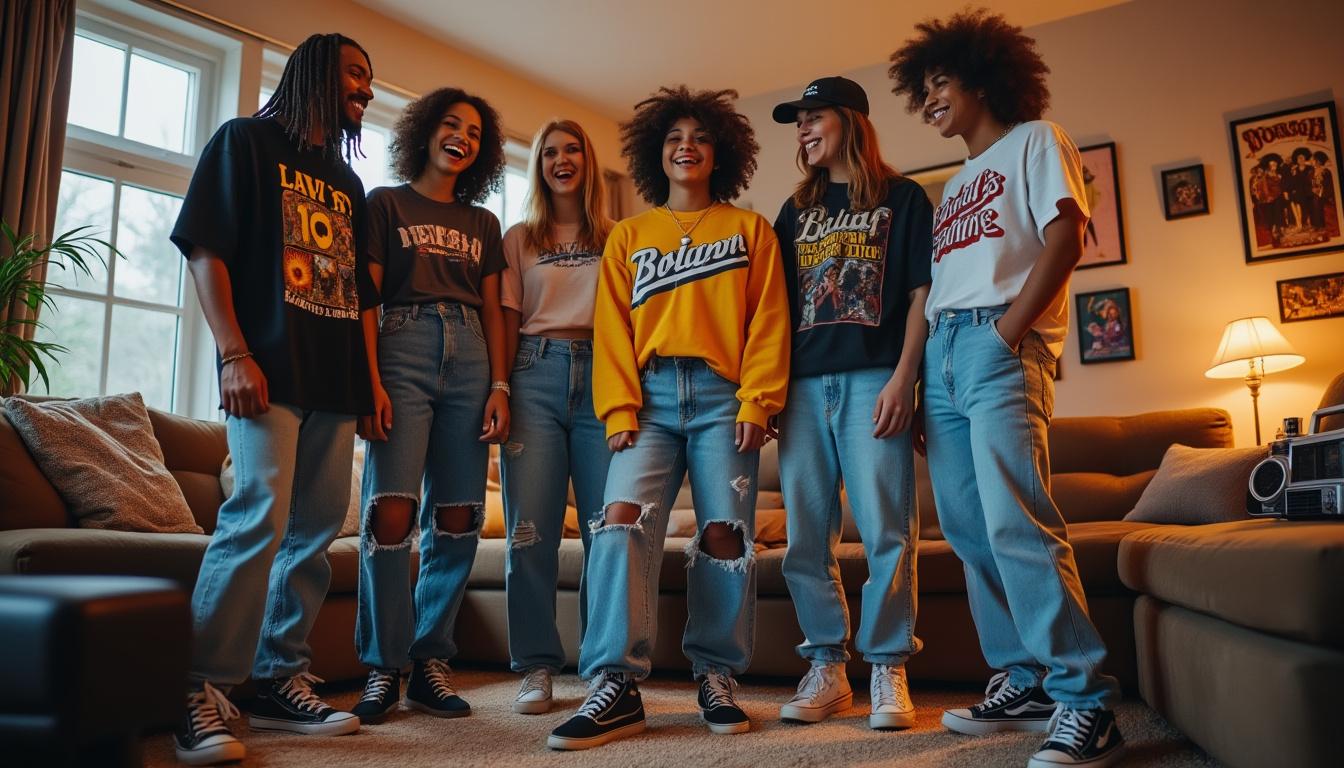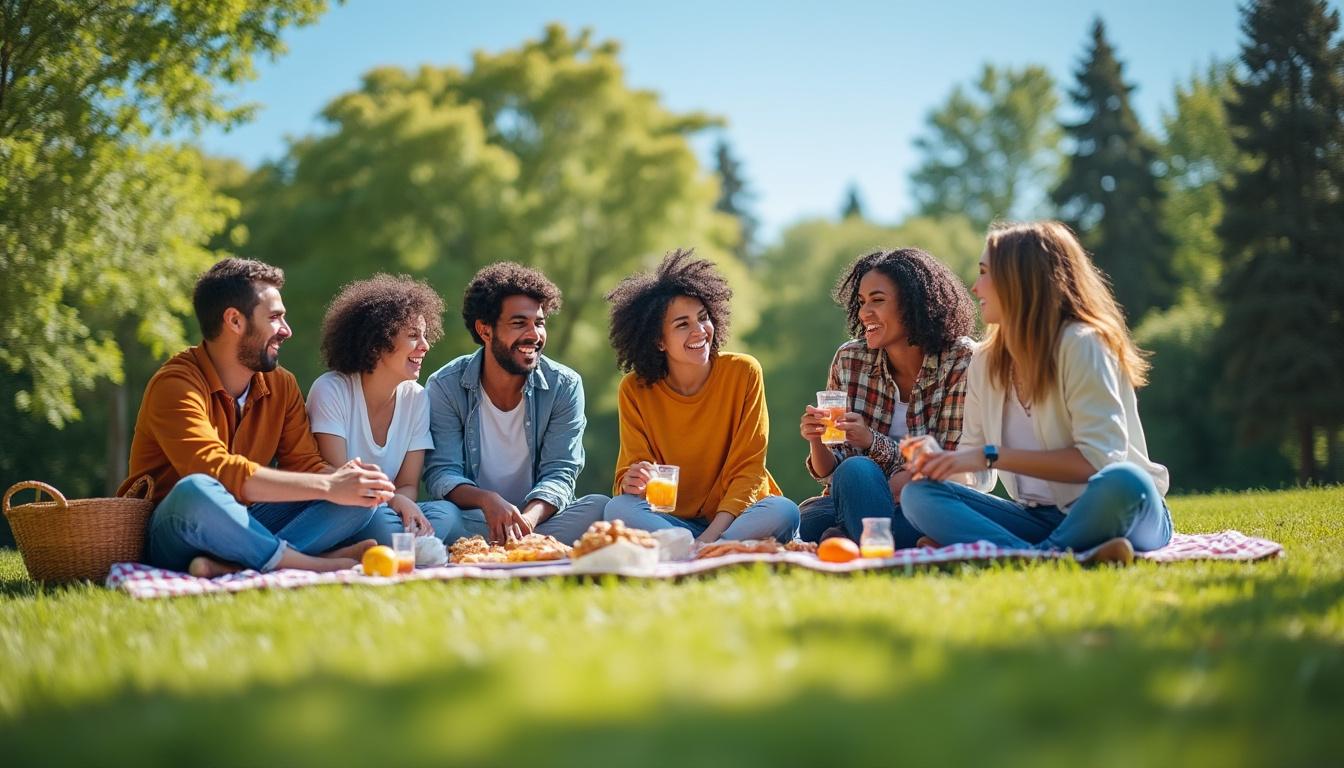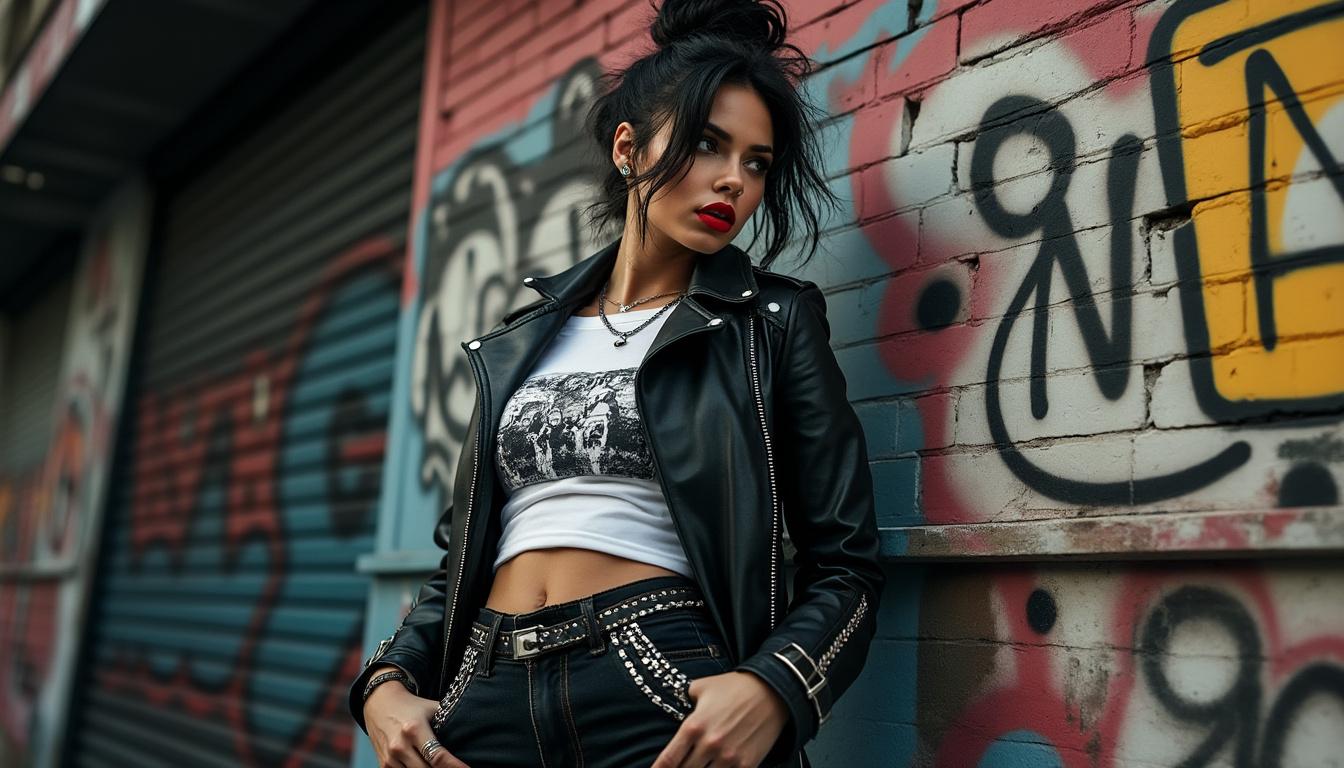The evolving landscape of friendships in the age of social media has led many celebrities to reflect on traditional notions of companionship, and Zoe Kravitz is no exception. During a recent discussion with Austin Butler about their new film, Caught Stealing, set in the nostalgic 1990s, Kravitz turned her gaze towards the iconic sitcom Friends. What was once considered a groundbreaking portrayal of friendship now faces scrutiny under the lens of contemporary values. This article explores Kravitz’s critical perspective on friendships, her analysis of the past, and how evolving cultural narratives are reshaping our understanding of companionship in the modern world.
Zoe Kravitz’s Perspective on Friends and Friendship
Zoe Kravitz, known for her roles in critically acclaimed films and series, recently made headlines for her critique of the beloved sitcom Friends. In a candid interview, she pointed out that many of the jokes on the show, which aired from the mid-’90s to early 2000s, did not age well. Specifically, she highlighted the “super homophobic jokes” that permeated the series. Kravitz stated, “If you watch Friends now, you’re like, ‘Whoa, that’s…’,” demonstrating her disapproval of the outdated humor that once defined mainstream television. Her remarks signal a growing awareness and sensitivity towards changing social norms.
This sentiment is not unique to Kravitz. Many other public figures have also criticized the show for perpetuating stereotypes and endorsing unacceptable humor under the guise of friendship. Sociologist Dr. Emily Johnson notes that the cultural context of the ’90s allowed for types of humor that many would now consider harmful. In an era striving for progress and sensitivity, Kravitz’s critique resonates deeply in discussions surrounding media representation.
Understanding the Impact of Outdated Humor
The humor of Friends was often celebrated as groundbreaking for its portrayal of a group of close-knit friends navigating the challenges of love and career in New York City. However, as Zoe Kravitz pointed out, the very elements that made the show popular can also be viewed as archaic today. Audiences in 2025 have an increased awareness of social issues, including representations of race, gender, and sexual orientation.
A deeper exploration reveals that the humor stemming from stereotypes can contribute to a backlash against marginalized communities. Kravitz articulated that some jokes that were intended as punchlines were, in fact, undermining serious issues. Here are some key examples that highlight the problematic elements of the series:
- Stereotypes and Jokes: Many jokes involved stereotypical portrayals of gay characters, which were not treated with the respect they deserved.
- Privileged Perspectives: The show often reflects a white, middle-class experience that does not address the diversity of its New York City setting.
- Lack of Representation: Other marginalized groups were rarely depicted on the show, limiting the representation of urban life.
As Kravitz suggests, there’s a strong argument to be made that some aspects of friendship depicted in Friends could perpetuate harmful ideologies, and this contributes to why its humor is now viewed less favorably. “We can keep that in the ’90s!” Butler humorously remarked, reinforcing the notion that some media from the past might not deserve revival or celebration in the present day.

The Nostalgic Appeal of the 1990s
Diving deeper into the conversation about nostalgia, Zoe Kravitz also reflected on the things she genuinely missed from the 1990s, apart from the outdated humor of sitcoms like Friends. Nostalgia can often evoke fond memories, stemming from simpler technologies, distinct fashion trends, and cultural moments that defined a generation.
During her chat with Butler, Kravitz fondly reminisced about the aesthetics of the time, including the vibe of New York City, the grunge fashion, and the sheer excitement surrounding new technology—like the iconic Nintendo 64 gaming console. While both actors embraced certain nostalgic elements, Kravitz was quick to draw a line at the humor she found problematic.
Elements of the 90s That Resonate Today
The 1990s introduced elements that many individuals still find appealing today; these include:
- Fashion Trends: The era’s eclectic fashion, characterized by flannels and oversized silhouettes, has seen a resurgence.
- Cultural Milestones: Iconic movies and music shaped a generation and continue to influence contemporary culture.
- Technological Beginnings: The dawn of the internet and mobile phones transformed how we communicate, setting the stage for today’s digital landscape.
Kravitz’s ability to appreciate the ‘good’ aspects while criticizing the problematic reflects a broader trend of critical nostalgia, where individuals recognize both the charm and flaws of past decades. It fosters an honest discourse on how far society has come regarding values and communication.
Modern Friendships: A Shift towards Deeper Connections
As cultural sensitivities shift, so too do the definitions and dynamics of friendships. At the forefront of this evolution is the advent of social media, which has drastically altered how friendships are formed and maintained. While platforms like Instagram and Facebook enable connections across distances, they can also create superficial relationships that lack depth.
In the wake of Kravitz’s comments about outdated humor, it becomes essential to address how today’s friendships diverge from the stereotypical portrayals seen in shows like Friends. Modern friendships often prioritize authenticity, emotional connection, and understanding.
The Elements That Define Modern Friendships
Today’s friendships may include the following defining characteristics:
- Inclusivity: Friendships that embrace individuals from diverse backgrounds and experiences.
- Emotional Intelligence: A focus on understanding emotions and fostering supportive environments.
- Digital Communication: Leveraging technology while maintaining the significance of real-life interactions.
Modern friendships, often founded on shared values and experiences, reflect an increased awareness of social issues—a stark contrast to the often naive and problematic portrayals seen on television in the 90s.

The Future of Friendships and Cultural Representation
Zoe Kravitz’s bold commentary on Friends represents a crucial conversation about how media shapes societal attitudes towards friendships. Her remarks illustrate a broader call for change in how friendships are depicted on television and film. This shift emphasizes the importance of cultural representation in creating authentic narratives that resonate with contemporary audiences.
As we move forward, it’s essential for creators and industry leaders to consider how new cultural understandings can inform the content they produce. The capacity to embrace complexity and nuance will contribute to more significant portrayals of relationships, dismantling stereotypes that have long been woven into the fabric of entertainment.
Key Takeaways for Creators and Audiences
As both audiences and creators navigate this changing landscape, several critical takeaways emerge:
- Embrace Diversity: Cultivating an inclusive environment leads to richer storytelling.
- Challenge Norms: Questioning established tropes helps create more meaningful content.
- Foster Communication: Reflecting honest and open communication styles reinforces positive representation.
With discussions led by influential voices like Kravitz illuminating the path forward, the future of friendships in media stands poised for growth and evolution. This revitalization signifies a society increasingly willing to engage with themes of authenticity, equity, and inclusiveness.


